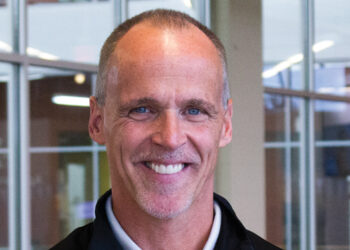As summer approaches, utilize these six ways to prepare lifeguards for reopening, in case of an emergency, and beyond typical training.
Lifeguards are the first line of defense in pool safety, therefore it’s key they are always prepared in every way to prevent a possible emergency.
Here are six ways to help prepare lifeguards for reopening.
1. Drops and Drills
A good lifeguard is a dry lifeguard. That means preventing an emergency before it happens. Performing drills in the pool and dropping manikins help prepare lifeguards to scan the bottom, middle and top of the water to ensure they are aware of their entire zone.
2. Sit, Stand, Stroll
Beyond simply sitting at their post, remind your lifeguards to stay active with movement at least every five minutes to maintain a ready presence at the pool. This can include standing up occasionally or talking a stroll around the pool. A change of scenery can be helpful for everyone and shifting zone views can help a lifeguard remain alert while guarding.
3. Modern Safety Equipment
Make sure to provide your lifeguards with the most up-to-date life-saving equipment including floatation devices, medical apparatuses and innovative technology for communicating emergencies, ideally automating notifications in case of emergency.
4. Monthly Trainings
Make sure your lifeguards attend monthly in-service trainings. Hands on practicing of water rescues, CPR and first aid is the best way to ensure your team is prepared in the event of an emergency.
5. Lifeguard Safety
It’s ideal to provide a mechanism to protect lifeguards themselves from the risk of an accident causing their own drowning, especially if they are alone opening or closing a pool.
6. Adequate Breaks
Make sure your guards are able to take regular breaks by always properly scheduling your staff. It’s important for leadership staff to take the job of a lifeguard seriously, as well as check in on guards.
When you are creating your overall pool safety plan, it’s imperative to keep your lifeguards safe, happy and ready for action. Through continued training and education, strong and supportive leadership, and adopting the most modern safety technologies, pool lifeguards can be prepared at all times.
Written in conjunction with Ame Guy, the association director of aquatics at the YMCA of Greater Charlotte.











